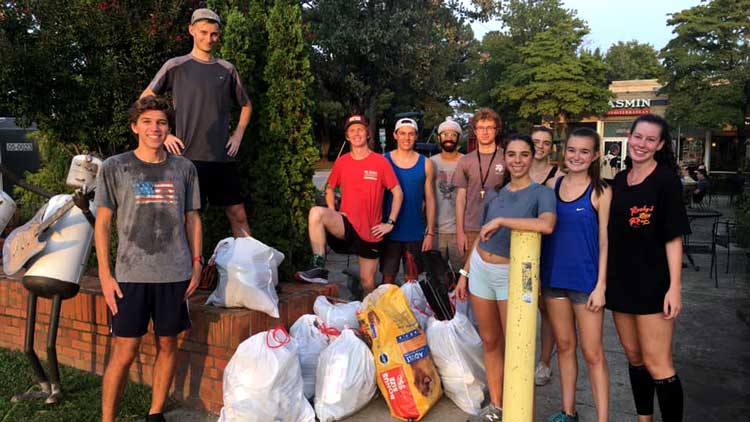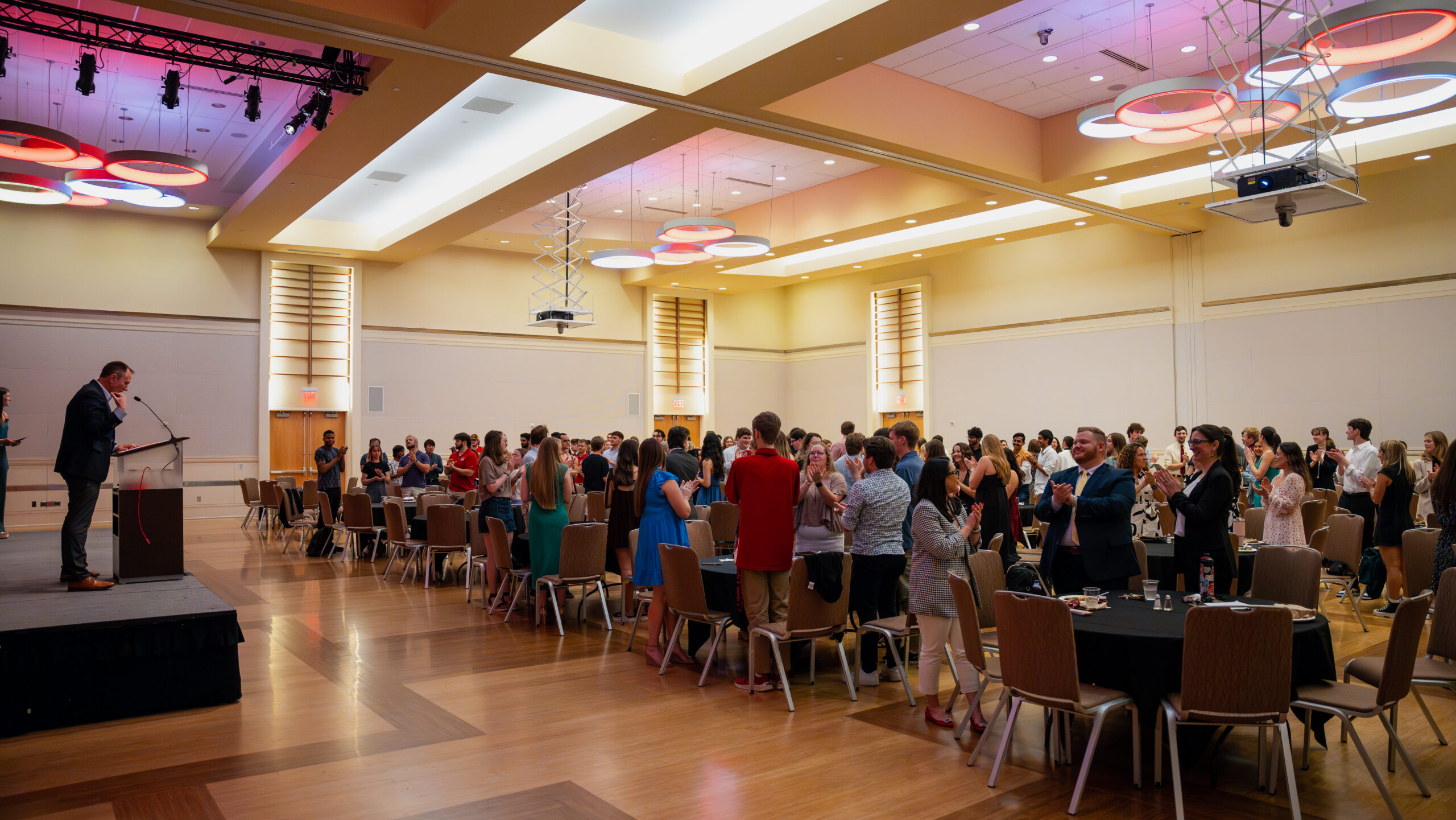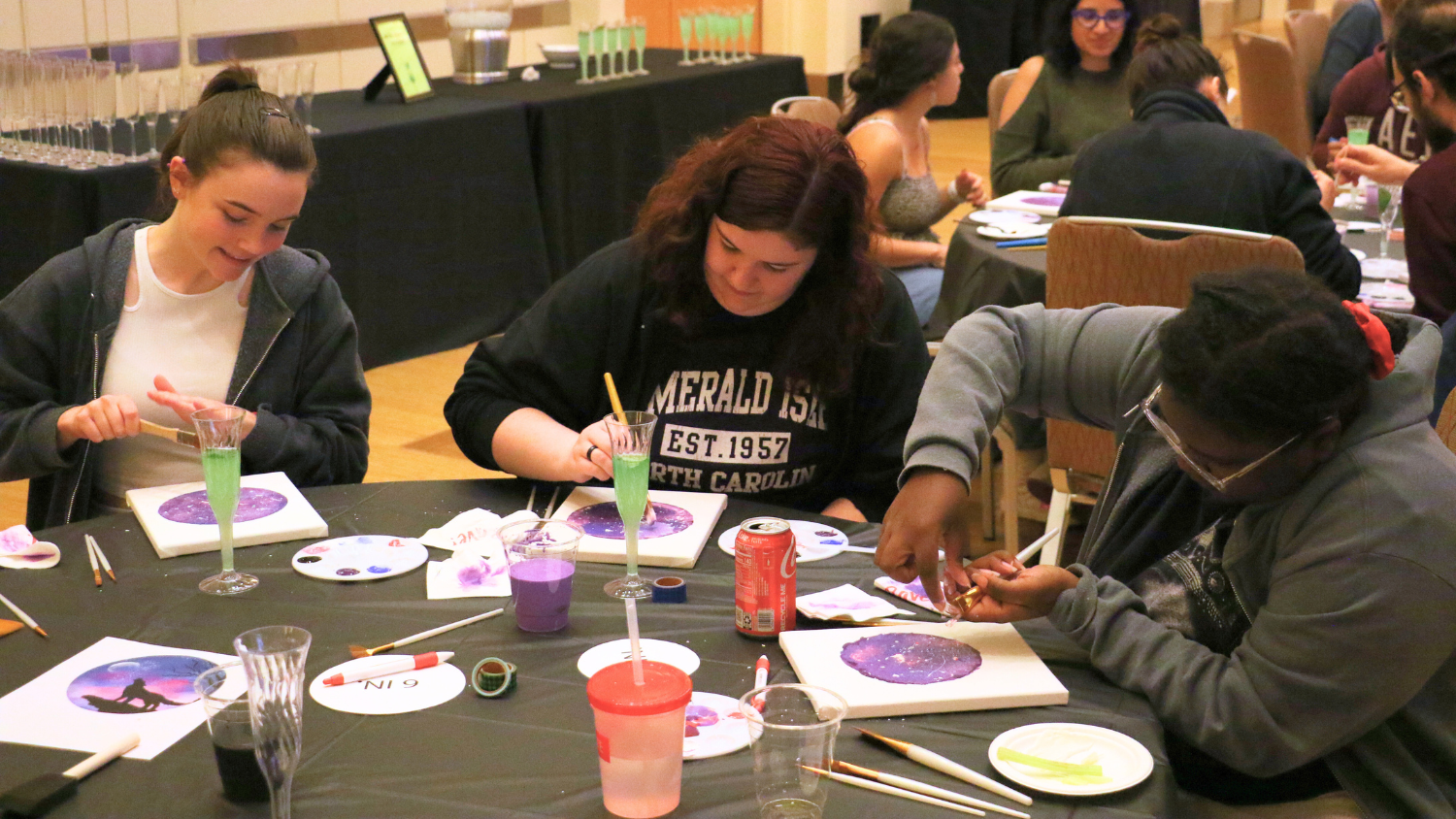‘Plogging’ trend takes over as students make strides to eliminate waste

By: Rachel Worley ‘21, business administration
We are all too familiar with litter seen on pathways. From empty cans to plastic bags, it can drive us to act toward cleaning up the environment. Compelled to make an impact on campus, three NC State Students decided to make a difference.
Owen Washam ’20, a horticultural science major, Riley Reid ‘19, a physics and chemistry major and Madeline Macmillan ’19, an environmental engineering major. United by a passion for sustainability; friends Washam, Reid, and Macmillan found a way to leave an influential lasting impression.
Plogging, a workout trend from Sweden, combines jogging and picking up litter. The idea is simple, rather than running past litter on the street, ploggers collect the trash and dispose of it properly.
The concept is so popular it is sweeping the globe– and its streets.
Reid, a passionate runner, discovered plogging online and decided to add it to her workout routine. “Initially, it was just a way to get people to go on a run with me and make an environmental impact at the same time, ” said Reid.
Roommates, Reid and Macmillan, both sharing a common bond over their love for the environment, decided to give plogging a try.
“After our first run, we realized how much trash there is, and the need for a plogging club,” said Macmillan. With an average of eight to 10 bags of trash collected per run, there was a clear need to establish plogging within the community.
As a physical activity, plogging provides a variety of body movements by adding the motions of bending, squatting and stretching to the main actions of running, hiking or walking. A typical plog can vary anywhere from 2 to 4 miles on average. To some, the idea of running this kind of distance can be daunting.
“I am not a runner, but I am an environmentalist,” said MacMillan. “What people often don’t know is that running isn’t a requirement for plogging. No matter the speed or distance, we all play an important role in plogging for the environment.”
While there are obvious physical benefits of this activity, plogging also promotes improved mental health by fostering a connected mindset to the environment. According to a 2013 study in Ecopsychology, optimal outdoor recreation experiences can result in a state of connectedness with the earth, which, in turn, can result in a broader sense of appreciation for the environment.
“What sparked my interest was the greater impact of plogging,” said Washam. “It positively impacts myself and my community through trash removal and raising public awareness.”
Awareness is highlighted not only in the campus community but also in the virtual community through posts made on social media accounts. A few top accounts leading the movement are PAAV, Plogging Association Algeria Volunteers group, and Litter Act Global which also lead the campaign movement for #createyourowngreenworld. These leading accounts help inspire many to leave their own green footprint.
On platforms such as Instagram and Facebook, the #plogging trend is gaining popularity, and encouraging others to give a hand. “Our main platform for organizing ploggers is our Facebook page. We are hoping this encourages others to take action with us or in their communities,” said Washam. By creating a network through hashtags NC State plogging can connect to other ploggers online.
To some, picking up a few pieces of trash may seem like it’s not enough to make an impact, but these small efforts can add up to tackle a massive problem. “Plogging has made more people aware of the impact of littering, and how the simple act of picking it a few pieces up can make a huge difference,” said Reid.
Of course, there are obstacles in the way making plogging no easy run. “One of our biggest challenges is getting people to take action,” said Macmillian. Peers commend us. However, we have trouble convincing people to come to our events and pick up trash,” said Macmillan.
This is not the only challenge. “Traffic can certainly be difficult, especially when we plog during rush hour,” said Washam.
NC State Plogging club is starting with simple strides on campus to create a global impact, with 14 members, the team is welcoming to more members. In addition to attending the club meetings, you can get involved by joining the online community and sharing your finds online. “Plogging is for all. As one race, we have a responsibility to clean up after ourselves and each other for posterity,” said Washam.
- Categories:


